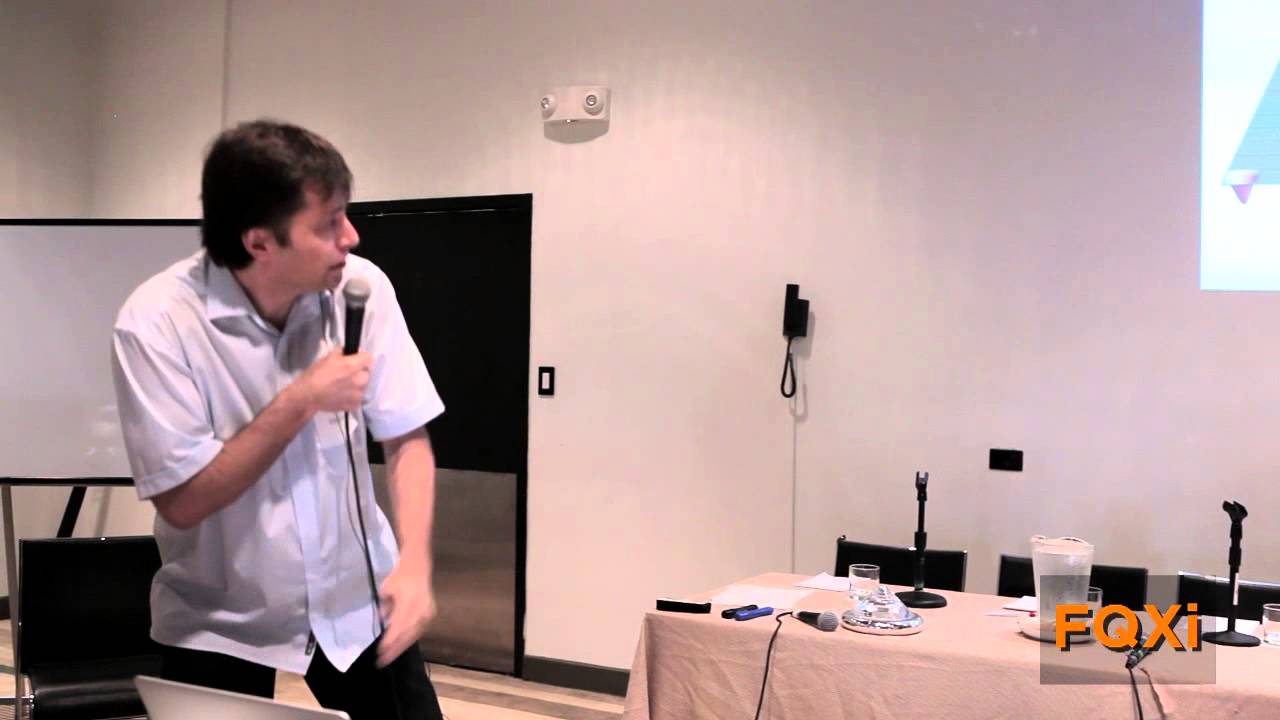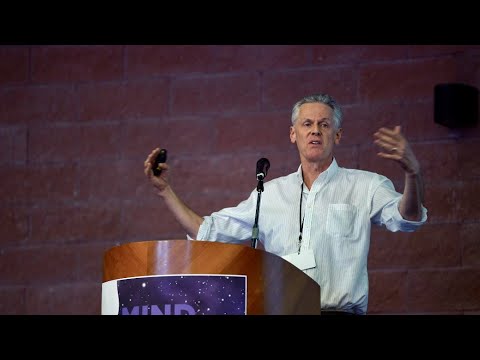scienceandnonduality
This is an excerpt from the interview with Alva Noë at the Science and Nonduality Conference 2013 featured in the 3DVD set “Science and Nonduality Anthology Vol.4”. In this clip Alva Noë discusses the view of consciousness in cognitive science and the philosophy of mind? For the full interview please visit: http://www.scienceandnonduality.com
Adyashanti, author of The Way of Liberation, Falling into Grace, True Meditation, and The End of Your World, is an American-born spiritual teacher devoted to serving the awakening of all beings. His teachings are an open invitation to stop, inquire, and recognize what is true and liberating at the core of all existence.
Asked to teach in 1996 by his Zen teacher of 14 years, Adyashanti offers teachings that are free of any tradition or ideology. “The Truth I point to is not confined within any religious point of view, belief system, or doctrine, but is open to all and found within all.”
ALVA NOË
Alva Noë is a writer and philosopher at UC Berkeley, where he is also a member of the Institute for Cognitive and Brain Sciences and the Center for New Media. For the last decade or so his philosophical practice has concerned perception and consciousness. His current research focus is art and human nature.
Alva is the author of Out of Our Heads: Why You Are Not Your Brain and Other Lessons From The Biology of Consciiousness (Hill and Wang / Farrar Straus and Giroux, 2009) and Action in Perception (The MIT Press, 2004). The central idea of these books is that consciousness is not something that happens inside us — not in our brains, or anywhere else; it is something we do.
Before coming to Berkeley in 2003, Alva taught in the department of philosophy at UC Santa Cruz. He received a PhD in philosophy from Harvard University in 1995; he has a BA from Columbia (1986) and a BPhil from Oxford Universiy (1986). He has been a fellow of the Wissenschaftskolleg zu Berlin (2007-2008). He is a research associate of the CNRS laboratory Institut Jean-Nicod in Paris. In the spring of 2003 he was a fellow of the Oxford Centre for Cognitive Neuroscience and in the 1995-1996 academic year he was a research fellow of the Center for Cognitive Studies at Tufts University. http://socrates.berkeley.edu/~noe/
Source




Alva Noe is among the most important thinkers of our time. He is working at one of the most profound and important contact points between metaphysics and the natural sciences. And his approach is absolutely revolutionary and potentially a total game-changer.
Consciousness during dreams cannot be externalized like he does. I´m not one of the "consciousness has to emerge from the brain"-proponents, but taking the other extreme does not really strike me as a solution.
Engineers know that a problems that appear as complex are actually a combination of many simple problems. For example, when a software seems to behave erratically in some random time, the solution often is caused by a few subtle mistakes, some of which are benign as is but contribute to hide the root cause.
Consciousness is a word with many distinct meanings… about 26 according to one of the panelist. Once we take time to define each clearly which meaning we want to explain, the solution is much more easy to find.
Interesting questions discussed by Baroness Susan Greenfield is: when does consciousness appear in human. After birth? When the egg is fertilized?
The answer she gave is very elegant. She said that consciousness is not a binary number, it is not just "All there" or "completely absent". It is more like a dimmer than a ON?OFF switch (even though dimmers are made with TRIACS which are really just ON?OFF switch with capacity to turn ON at sub-millisecond precision).
Consciousness can only exist when a large collection of neuron exist, so, an embryo with only the neural tube is clearly unable to think or be conscious. A jelly fish with a few hundreds neurons is only conscious of day light and gradient of nutrients.
The mammals with their frontal cortex are more conscious then other species without this advanced structure. It is still possible that Octopus with their distributed computing model, birds and other animals developed nonetheless some form of consciousness.
Adult humans in good health presumably rank very high on the scale. Unfortunately, when diseases, strokes or accident damage the brain, they may not be the same person anymore since "my memory is me, if it get erased I die" as said the robot Number 5 in the second movie Short Circuit.